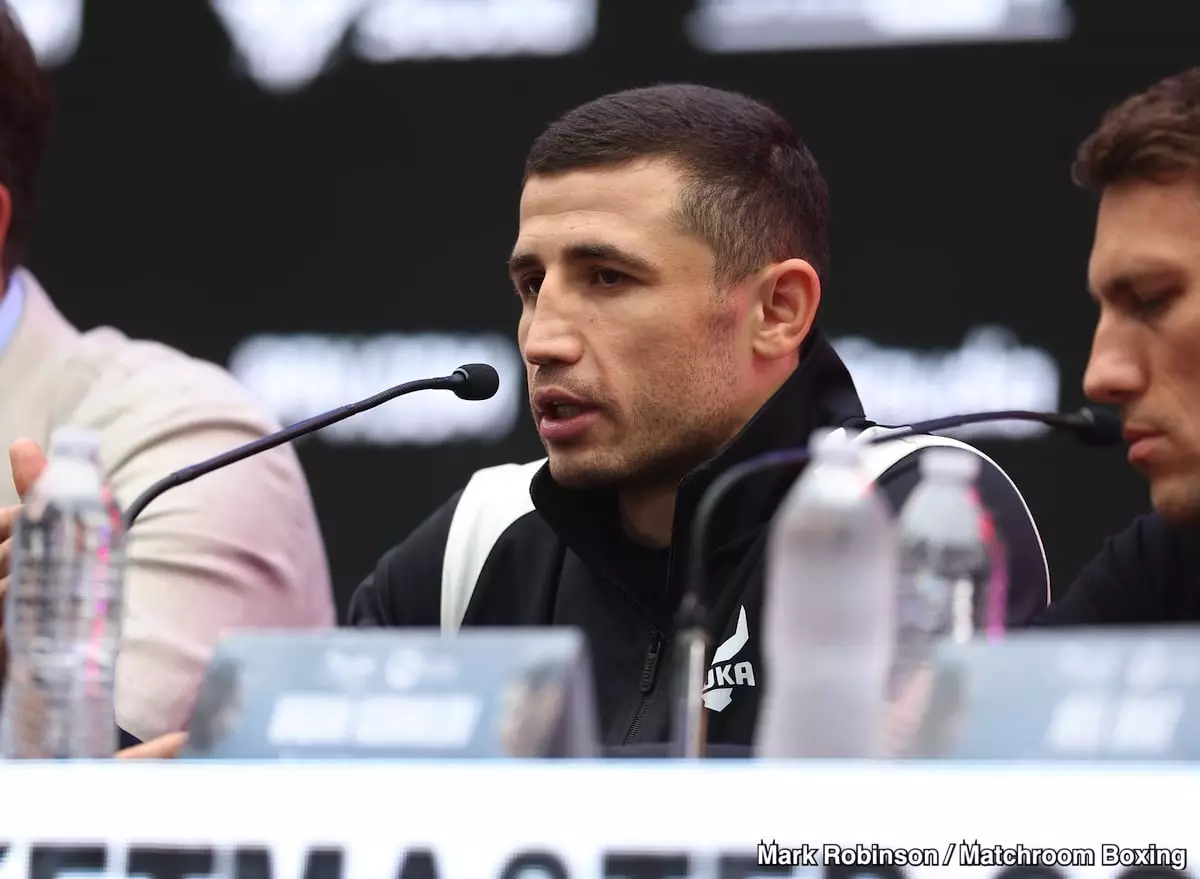The world of professional boxing is often as unpredictable as it is thrilling, and the recent developments surrounding Serhii Bohachuk illustrate this perfectly. Originally slated to face Israil Madrimov, the former WBA junior middleweight champion, Bohachuk must now pivot to fight British contender Ishmael Davis on December 6th—a change prompted by Madrimov’s unexpected withdrawal due to acute bronchitis. This alteration has left Bohachuk’s coach, Manny Robles, feeling disillusioned and blindsided, describing the situation as a “slap in the face” to both him and his fighter.
In sports, particularly in boxing, the mental and emotional toll of such changes can be significant. Training camps are meticulously planned, with hope and anticipation building towards the match day. When an opponent draws out at short notice, it not only disrupts those plans but also raises questions about the competitor’s commitment and the integrity of the matchup. This sense of betrayal can linger for trainers and fighters alike, influencing their performance in upcoming bouts and impacting their mental preparedness.
The announcement that Madrimov would take an alternative fight against highly regarded Vergil Ortiz Jr. also brings its own narrative arc. The timing suggests that Madrimov’s team might have evaluated the benefits of a higher-profile fight and larger purse against Ortiz, outweighing the risk of facing an equally talented fighter like Bohachuk. It’s not uncommon for boxers and their camps to prioritize financial gain and marketability over competitive matchups, especially when recent performance creates a disparity in public perception. After all, Ortiz’s victory over Bohachuk via majority decision—albeit a controversial one—places him in a more advantageous position.
This situation reflects broader themes within the sport: the constant juggling act between financial incentives and reputational risks. Fighters must navigate these waters delicately, often sacrificing potential accolades for lucrative opportunities. For Bohachuk, this means recalibrating expectations and preparing for a different style of opponent altogether.
An In-Depth look at Ishmael Davis
Enter Ishmael Davis, a fighter who holds a professional record of 13 wins, 1 loss and 6 knockouts. His last fight, a close majority decision loss to Josh Kelly, was indicative of his abilities; while not particularly explosive, Davis showed glimpses of skill against a more experienced opponent. Yet, this matchup raises numerous questions. Will Davis, lacking knockout power and further hindered by his inconsistent performances, present a legitimate challenge for Bohachuk? The answer lies in Bohachuk’s own preparedness and ability to adapt within the ring.
From a strategic standpoint, Bohachuk’s team must seize this opportunity to demonstrate his skill and versatility. However, the specter of disappointment looms large. Robles expressed skepticism about the seriousness of Madrimov’s illness, suggesting a suspicion regarding the timing of the pullout and replacement. The notion that a backup opponent was readily available raises eyebrows and casts doubt on Madrimov’s professed commitment to the bout with Bohachuk.
Despite the disruption, the essence of boxing is resilience. Both fighter and coach are now faced with the task of channeling their energy into a new opponent under altered circumstances. Confusion and disappointment could give way to motivation and determination as they come to grips with the challenges ahead. For Bohachuk, a victory against Davis can serve not only as affirmation of his skills but also as a necessary step in reclaiming stature and credibility within the boxing community.
The critical part of this narrative is whether Bohachuk, initially training for a more formidable opponent, can adapt to the different dynamics Davis brings. The key will be for Bohachuk to draw on his training and fight experience, showcasing his power and skill set in a way that reinstates confidence among fans and analysts alike.
This situation epitomizes the unpredictable yet fascinating nature of boxing, forcing athletes to contend not only with their opponents but also with the shifting landscapes of opportunity and challenge. For Serhii Bohachuk and his team, the focus shifts to capitalizing on this new encounter—transforming a setback into an opportunity for resurgence in the ring. As they prepare for December 6th, the boxing world will be watching closely, eager to see how both sides navigate this evolving narrative.

